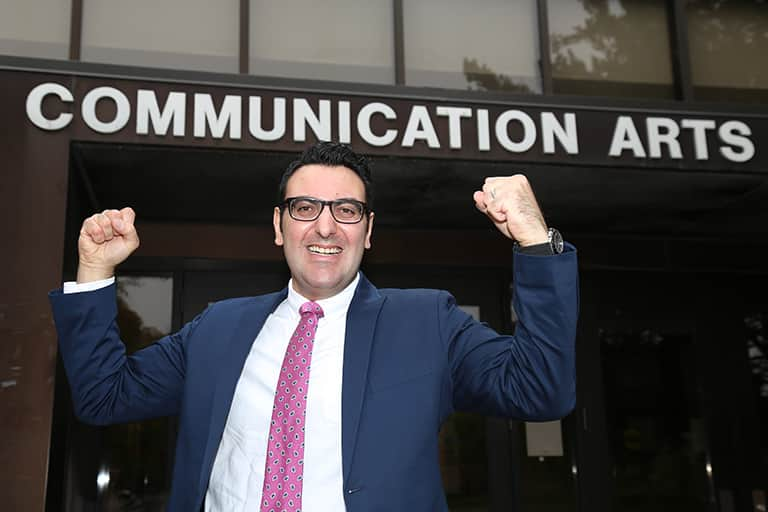Bullying is a chronic issue for school administrators and instructors. With social media acting as an additional digital environment for students, the name-calling and destructive criticism has become even harder to contain.
Saleem Alhabash, Assistant professor in the MSU Department of Advertising + Public Relations, was invited to speak about his research studying cyberbullying and why people don’t report or take action against bullies online as a panelist for Defeat The Label, a social movement that promotes inclusivity and acceptance in schools around the world. The group hosted its first community conversation about bullying in Novi, Mich. in October.
MSU’s partnership with Defeat The Label was orchestrated by an East Lansing local and longtime university employee Kevin Epling. Epling began advocating against bullying more than a decade ago after his middle school aged son committed suicide as a result of being bullied by fellow students.
“I’ve been doing some work on cyberbullying and Kevin tried to connect us with Defeat The Label,” said Alhabash. “We organized this community conversation that gathered school administrators from different parts of the state, school educators, students and parents and other people to try to talk about what can we do to promote non-bullying in our schools.”
Alhabash’s research focuses heavily on college students, emphasizing how bullying does not end when a student graduates high school and joins a college campus. He explained that 20 percent of Michigan State University college students report being bullied – in person and online – and 70 percent say they have seen someone else being bullied. He said it can be seen in greek life, dorms and in the classroom.
“It is still happening but no one is talking about it because there’s a big stigma that bullying is something for young people and we don’t want to chat about it,” said Alhabash. “The work that I’m trying to do now is trying to shift the discussion from the stigmatized bullying and cyberbullying and specifically talk about aggression and digital aggression.”
Alhabash recommends that system and software designers implement more strict policies to curb the prevalence of online bullying. More simply, he said, people can take action by reporting harmful content and speech as well as keeping a record of it.
“When you see something mean happening online record it. Take a screenshot,” said Alhabash. “Grab it any way because past experiences have shown that some of these aggressive behaviors online can turn into really bad things such as a person committing suicide or someone telling someone to commit suicide.”
At the panel, Alhabash said educators responded well to what he had to say, but they questioned how to promote kindness in the classroom when the current political climate of the presidential election is based on bullying.
“It’ll be interesting to see after this election campaign how the rates of bullying and cyberbullying go up,” said Alhabash.
